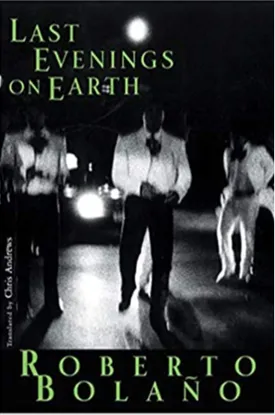Roberto Bolaño
Roberto Bolaño was a Chilean author who achieved posthumous success due to the extraordinary power of his novels, poetry and short stories. Born in Santiago, Chile, in 1953, he wrote mainly in Spanish, though some of his poetry and stories appear in translation in various languages.
In the late 1990s, Bolaño found success with his two full-length novels - the thinly-fictionalized autobiographical “The Savage Detectives” and the sprawling epic “2666” – and began to draw the attention of a growing readership. His work has been met with critical acclaim across the world, particularly for its vivid and lyrical language, often described as having 'noir' qualities. In 2008, Bolaño was awarded with the prestigious Rómulo Gallegos Prize.
Bolaño's early works often focused on the theme of exile and explored his characters' struggles in the face of deprivation and displacement. His dark, elliptical stories often focused on the impermanence of life, rooted in his own experiences as part of Chile's 'lost generation'- the generation of children who were born during the military dictatorship and displaced by the political turmoil in their country.
In his later works, he turned his gaze to his native Chile and its long history of violence and dictatorship, a reality he had only experienced first-hand as a teenager. His novels moved away from the metaphysical terrors of his earlier works, and instead focused on the nuances and irony of daily living under oppressive circumstances. The themes in his work range from crime and corruption to beauty and art, and he wrote with a stark naturalism, creating a vivid and multi-dimensional portrait of life under the dictatorship.
Bolaño's last novel, “2666”, was published posthumously in 2004 and is widely considered his masterpiece. It follows four academics as they trail a mysterious German novelist, who has a strange fascination with the city of Santa Teresa, Mexico. The novel’s narrative shifts between the past and present, as the characters uncover a terrible secret about the city's history. By the end of the novel, the characters are left in an ambiguous and unresolved – but deeply affecting – state of twilight.
Roberto Bolaño was an immensely influential author who pushed boundaries and explored complex questions about Latin American culture, identity, and oppression. His works have attracted huge audiences from around the world, and have been the subject of numerous adaptations to film and television. He is remembered as a pioneering writer who embraced the complexities of life with grace and humour.

